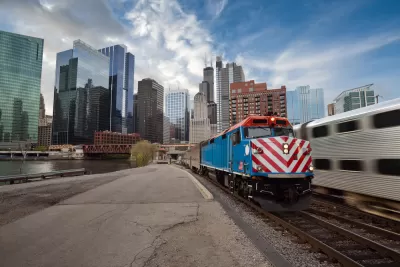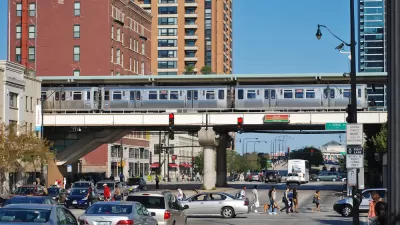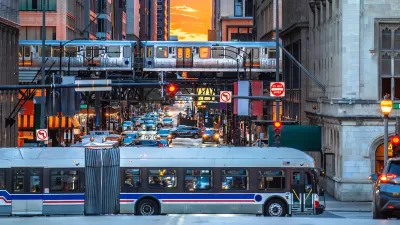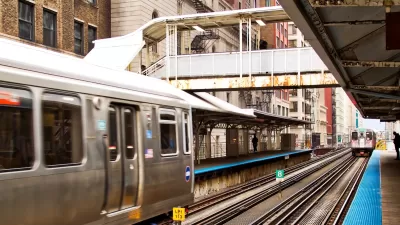The $45 billion transportation bill approved by the Illinois Legislature ended up including more public transit funding than it originally offered, but a Kendall County Metra project raises questions.

Despite the fears of those who saw an earlier version of Illinois’ transportation capital investment bill, the final version approved earlier this month puts cash into the Metra, CTA, and Pace transit systems. "The bill that passed this weekend, which includes a $33 billion, six-year transportation capital program, turned out to be much better for sustainable transportation than many advocates had anticipated," according to an article by John Greenfield.
The timing of the funding is also important. Illinois has traditionally funded transit agencies through sporadic capital bills making it hard for transit operators to budget. This bill looks to address that problem. "The bill also includes long-term, sustainable funding for public transportation, with transit receiving $4.7 billion over the first six years and $281 million for each year afterwards," Greenfield reports.
Chicago’s commuter railroad agency received funds to make improvements and replace outdated equipment to bring it into a state of good repair. "The capital bill earmarks $100 million for construction of a BNSF extension beyond Aurora and into Kendall County," according to a seprate article published on Yard Social. This particular project drew criticism in the same piece, which argued that far-off Kendall county might not be the right place to push for additional rail service.
"The bill provides a significant amount of capital funds that allow our transportation agencies to put a serious dent in much-needed state-of-good-repair improvements and ongoing annual capital funds to start taking service improvements more seriously. But without a fundamental shift in how our system works — whether that’s at the individual project level or more holistically," according to the Yard Social opinion piece.
FULL STORY: Pritzker’s Nearly $45B Capital Plan Is Way Better for Transportation Than Expected

Planetizen Federal Action Tracker
A weekly monitor of how Trump’s orders and actions are impacting planners and planning in America.

Map: Where Senate Republicans Want to Sell Your Public Lands
For public land advocates, the Senate Republicans’ proposal to sell millions of acres of public land in the West is “the biggest fight of their careers.”

Restaurant Patios Were a Pandemic Win — Why Were They so Hard to Keep?
Social distancing requirements and changes in travel patterns prompted cities to pilot new uses for street and sidewalk space. Then it got complicated.

Platform Pilsner: Vancouver Transit Agency Releases... a Beer?
TransLink will receive a portion of every sale of the four-pack.

Toronto Weighs Cheaper Transit, Parking Hikes for Major Events
Special event rates would take effect during large festivals, sports games and concerts to ‘discourage driving, manage congestion and free up space for transit.”

Berlin to Consider Car-Free Zone Larger Than Manhattan
The area bound by the 22-mile Ringbahn would still allow 12 uses of a private automobile per year per person, and several other exemptions.
Urban Design for Planners 1: Software Tools
This six-course series explores essential urban design concepts using open source software and equips planners with the tools they need to participate fully in the urban design process.
Planning for Universal Design
Learn the tools for implementing Universal Design in planning regulations.
Heyer Gruel & Associates PA
JM Goldson LLC
Custer County Colorado
City of Camden Redevelopment Agency
City of Astoria
Transportation Research & Education Center (TREC) at Portland State University
Camden Redevelopment Agency
City of Claremont
Municipality of Princeton (NJ)





























